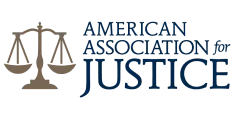In the summer of 1812 Napolean had assembled one of the greatest military forces ever seen on Earth. The French Grande Armee numbered close to 700,000 men as they left France, heading towards Poland to free them from the Russian tsar and to ultimately crush Russia and redirect control of the empire’s resources back to Paris.
Along for the historical journey was a doctor by the name of Pierre Jean Moricheau-Beaupre.
Napolean’s army moved swiftly and dominantly through Western Russia without much of any slow down. The Russian army was overwhelmed and they quickly fled East at every opportunity, which allowed the French to advance deep into the heart of Russia.
In September they reached Smolensky and continued to Moscow nearly untouched.
Now well aware that they could never defeat the French army, the Russians changed strategy and burned every field, farmhouse and anything else they had intended on protecting in Moscow. The entire city was an inferno and went up in flames and the only thing left was smoldering ruins.
The French army had been successful pillaging prior towns of food and nourishment, which allowed them to travel light and fast. However, they had not anticipated Moscow’s destruction – rather they had relied on the anticipated foods, drink and nourishment in Moscow to continue their quest.
As Napolean struggled over what to do next, time passed and the army found themselves in the midst of one of Russia’s harshest Novembers on record. The temperature plummeted, the army was starving, and Napolean reluctantly ordered an embarrassing retreat.
Dr. Beaupre’s job had been to oversee the injuries, amputations and related war horror until the retreat. Then his job quickly shifted to watching soldiers – both starving and cold – retreat and travel the 750-mile journey home. Dr. Beaupre would document the horrors he witnessed.
Soon soldiers began to die right and left. However, most interestingly, Beaupre came to believe that physical limits were not necessarily the most critical factor in determining who lived and who died. He believed that mortality hinged on a mind set. Beuapre saw that the soldiers who lost hope were the first to fall. He termed this critical factor between life and death the “vital principle”.
In 1946, Viktor Frankl wrote Man’s Search for Meaning which chronicled his experience as an Auschwitz concentration camp survivor during WWII. Though he never refers to the term “vital principle“, he also identifies that the mind set – one of hope versus lost hope – was the fundamental difference between those who forged ahead, and often survived, and those who didn’t.
History is replete with remarkable survival stories that rest on the foundation of hope. In 2010, Laura Hillenbrand wrote Unbroken: A WWII Story of Survival, Resilience and Redemption that was later adapted to a Hollywood movie. The book chronicles the true story of Louis Zamperini who overcame remarkable odds surviving 40 plus days on a raft after his bomber was shot down, and then survived months in one of Japan’s worst concentration camps.
History defines hope as man’s most prolific medicine. Hope can conquer the deepest and darkest despair. Without hope, death is the victor.
The vital principle grabbed a hold of me while I laid motionless in a gurney in 2011. But what can’t be lost, is that circumstances, people and surroundings play an important role in the vital principle. Without support, the vital principle can evaporate, which is likely why Dr. Beaupre wrote about scores and scores of French army soldiers dying together, freezing to death, while others would continue walking to generate body heat. Thirty thousand French soldiers would make it back home to France, more than 650,000 perished.
I do believe that a heroic story lies within each and every one of us. My firm is committed to helping and contributing to our client’s vital principle, just the same as many did for me.
The Ochs Law Firm has co-counseled with some of the very best plaintiffs’ law firms in the country, from New York City to Los Angeles to Chicago to Seattle. We take pride in our professional relationships and we value the work we do with others both locally and nationally. The attorneys at the Ochs Law Firm would be happy to talk with you about co-counsel and/or local counsel if your firm is in need of either.




To speak with a compassionate and devoted attorney today.
© 2026 Ochs Law Firm. All rights reserved. | Privacy Policy | Terms of Use | Website by NBBC Group | Law Firm Marketing and SEO by Growth Lab
